PATRIOTS, ROYALISTS, AND TERRORISTS IN THE WEST INDIES
The French Revolution in Martinique and Guadeloupe, 17891802
WILLIAM S. CORMACK
Patriots, Royalists, and Terrorists in the West Indies
The French Revolution in Martinique and Guadeloupe, 17891802
UNIVERSITY OF TORONTO PRESS
Toronto Buffalo London
University of Toronto Press 2019
Toronto Buffalo London
utorontopress.com
Printed in the U.S.A.
ISBN 978-1-4875-0395-6
 Printed on acid-free, 100% post-consumer recycled paper with vegetable-based inks.
Printed on acid-free, 100% post-consumer recycled paper with vegetable-based inks.
Library and Archives Canada Cataloguing in Publication
Cormack, William Stewart, 1961, author
Patriots, royalists, and terrorists in the West Indies : the French Revolution in Martinique and Guadeloupe, 17891802 / William S. Cormack.
Includes bibliographical references and index.
ISBN 978-1-4875-0395-6 (hardcover)
1. Slave insurrections West Indies, French. 2. West Indies, French History 18th century. 3. France History Revolution, 17891799. I. Title.
F2151.C67 2019972.976C2018-904039-4
This book has been published with the help of a grant from the Federation for the Humanities and Social Sciences, through the Awards to Scholarly Publications Program, using funds provided by the Social Sciences and Humanities Research Council of Canada.
University of Toronto Press acknowledges the financial assistance to its publishing program of the Canada Council for the Arts and the Ontario Arts Council, an agency of the Government of Ontario.

Illustrations and Maps
Illustrations
Maps
Acknowledgments
This book would never have been completed, let alone published, without help from many people, to whom I owe an enormous debt of gratitude. First and foremost, I want to express my profound thanks to my wife, Penny, and my daughter, Meg, for all of their love and support at every stage of this project.
I would like to thank the anonymous readers appointed by the University of Toronto Press for their careful reading of my manuscript, their thoughtful comments, and their excellent suggestions for revision: their constructive criticism helped to improve the final text immensely. I am also very grateful to three other people who read earlier versions of the manuscript. David Murray provided helpful advice and unflagging encouragement. Jeremy Popkin gave me the invaluable benefit of his expertise on the revolution in the French colonies and reassured me that this project was a valid one. Bette Olivers sound editorial suggestions helped me to reduce the manuscripts length and to sharpen its focus. I also wish to acknowledge the kindness, assistance, and guidance I received from editors Stephen Shapiro and Richard Ratzlaff. All errors or flaws that remain in the book are, of course, entirely my responsibility.
The research for this project was supported financially by a standard research grant from the Social Sciences and Humanities Research Council of Canada. This research was only possible with assistance from the staff of the Archives nationales in Paris, the Centre des archives dOutre-Mer in Aix-en-Provence, the Archives dpartementales de la Martinique in Fort-de-France, the Archives dpartementales de la Guadeloupe in Basse-Terre, the Archives dpartementales de la Gironde in Bordeaux, and the Archives municipales de Bordeaux. In metropolitan France and in the Caribbean, these busy people were always patient and helpful.
I also wish to express my appreciation to Marie Puddister, cartographer in the department of geography at the University of Guelph, who created the superb maps, and to Dr Katy Barrett, curator of art at the National Maritime Museum, Greenwich, who graciously gave me a personal viewing of the images used to illustrate this book.
Finally, I would like to thank my faculty colleagues and friends, for their support in various forms, and the students I have taught for their interest and enthusiasm that constantly reaffirmed the value of teaching and studying history.
PATRIOTS, ROYALISTS, AND TERRORISTS IN THE WEST INDIES
The French Revolution in Martinique and Guadeloupe, 17891802
Introduction
In September 1789, two months after crowds stormed the Bastille in Paris, merchant ships from Bordeaux arrived at the colonies of Martinique and Guadeloupe in the eastern Caribbean bringing news of the French Revolution. The effect of this news, and of the tricolour cockades worn by the ships passengers and crews as symbols of revolutionary liberty and national sovereignty, was dramatic. The colonial governors efforts to prevent the wearing of such cockades sparked riots in the ports of Saint-Pierre in Martinique and Pointe--Pitre in Guadeloupe, and these riots began a protracted and convoluted revolutionary struggle in the Lesser Antilles or, as French contemporaries referred to them, the les du Vent or the Windward Islands. While smaller than the colony of Saint-Domingue, their sugar and coffee production made the Windward Islands valuable components of Frances commercial economy. This production depended on slave labour, and the black slaves who worked the plantations vastly outnumbered the free population, which was itself divided along racial, economic, and social fault lines. The grievances and agency of the colonial population shaped the ensuing struggle but so did metropolitan influences. This study provides a history of the French Revolution in Martinique and Guadeloupe.
The arrival of news, ideas, and language from France provided a script for revolutionary action in the Windward Islands, a script that was revised periodically by new metropolitan communications. Rumours of emancipation sparked an abortive slave revolt in Martinique at the end of August 1789 and revealed the depth of white fears regarding the fragility of the slave system. Revolutionary symbols and rhetoric encouraged white resistance to colonial elites and provided new political identities: petit-Blanc, or poor white, and merchant supporters of the revolution called themselves patriots, while referring to the governors as despots and to their planter enemies as aristocrats. Travellers accounts and newspaper reports, as well as official announcements, undermined royal authority in the colonies and provoked local claims to national or popular authority. While planters used existing colonial assemblies to arrogate legislative authority, defying metropolitan regulation of trade, a popular committee in Saint-Pierre claimed to speak for the people and denied the legitimacy of both the colonial assembly and the governor general. The colonial revolution, however, was deeply ambiguous. White colonists demanded freedom for themselves but also wanted the maintenance of black slavery. White insistence on strict racial hierarchy poisoned debates on citizenship for the gens de couleur, the colonies free people of colour, whose aspirations for equality were clear before 1789. Planters sought greater colonial autonomy yet backed governors against popular challenges to the islands elites.
The revolutions ambiguity in the Windward Islands continued after 1789, as did competition between rival claims to legitimate authority. A bitter factional struggle escalated to civil war in 1790, and the representatives from France sent to end the conflict failed to reconcile the two sides or to impose principles of the liberal revolution. In 1792 planter-controlled colonial assemblies in Martinique and Guadeloupe rebelled against metropolitan authority under the banner of the old monarchy. A single frigate captain defeated this counter-revolution by both undermining its legitimacy and by promising equality to free people of colour, all the while reassuring masters that the French Republic would not threaten slavery. The tensions and contradictions within the republican regimes subsequently established in Martinique and Guadeloupe diminished the colonies ability to resist British conquest in 1794. In the context of international war, new agents of metropolitan France regained control of Guadeloupe and delivered the most radical of revolutionary scripts: the abolition of slavery and the Jacobin Terror. Yet racial and political ambiguity also characterized this radical regime. At the same time, planters in Martinique collaborated with the British occupation to maintain slavery and to isolate the colony from all notions of liberty and equality.

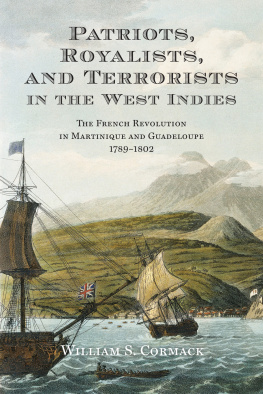

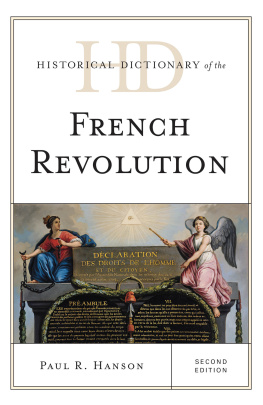

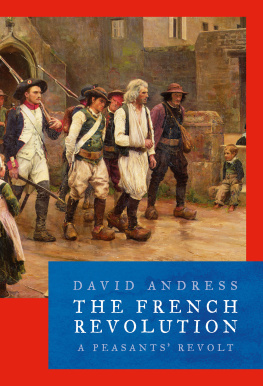
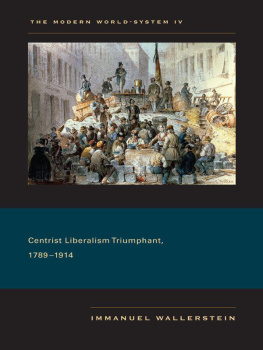
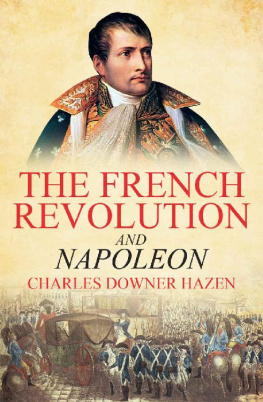
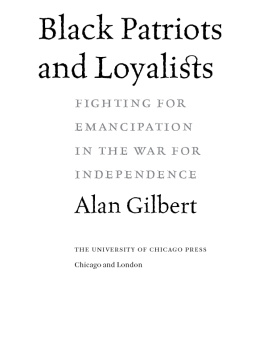

 Printed on acid-free, 100% post-consumer recycled paper with vegetable-based inks.
Printed on acid-free, 100% post-consumer recycled paper with vegetable-based inks.